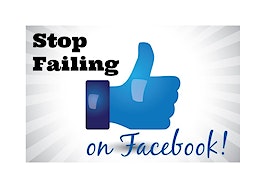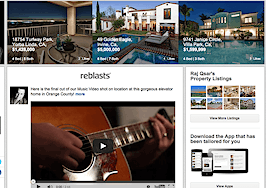Last week, Facebook acquired WhatsApp, the popular mobile messenger app, for a jaw-dropping $19 billion. That’s billion with a “B.”
Needless to say, the move generated lots of headlines, with many stories focusing on the deal’s price tag. But Facebook is a media empire, and these types of acquisitions are fairly common in this space. In fact, I’d be shocked not to see additional acquisitions of this nature in the future.
Facebook’s business strategy is pretty clear: Win the mobile game by creating and or acquiring applications. This includes public and private social networking, messaging and photo sharing.
The announcement was examined and cross-examined by every tech journalist and blogger on the Web. As Re/code columnist Kara Swisher so felicitously wrote: “Insiders have been saying a lot recently that the goal is now to break out all the various functions of the whole service into big mobile apps. Hence, Messenger. And news-reader Paper. And, of course, the purchase of photo-sharing app Instagram for $1 billion, which now seems like a bargain.”
I was surprised to learn that many of the real estate agents that I know and work with were not familiar with WhatsApp. Here are three things you should you should know about the app:
1. WhatsApp reproduces the functionality of your phone’s text messaging “short message service” (SMS), but it actually utilizes the data plan (not your SMS plan) on your phone to send and receive messages, pictures, audio notes, and video messages over Wi-Fi and carrier networks. As the company’s website puts it, “Because WhatsApp Messenger uses the same Internet data plan that you use for email and Web browsing, there is no cost to message and stay in touch with your friends.”
If you’d like to learn more about the scability of WhatsApp’s business model, I recommend reading, “What’s the WhatsApp Endgame?” by Matthew Yglesias, business and economics correspondent for Slate.
2. The WhatsApp user base is 450 million and growing every day. Mark Zuckerberg believes the app will eventually connect 1 billion users.
“More than 1 million people sign up for WhatsApp every day, and it is on its way to connecting 1 billion people. More and more people rely on WhatsApp to communicate with all of their contacts every day.”
It’s also important to note that WhatsApp is used by a younger demographic. There’s a good chance that your clients and colleagues are already utilizing the app.
3. WhatsApp is cross-platform. It is extremely accessible and is available for Android, iPhone, BlackBerry, Nokia S40, Symbian and Windows Phone. It is this accessibility that has made the app so attractive. The app is wildly popular internationally. The service is subscription-based and costs 99 cents a year, after the initial year of use. This is certainly advantageous in the eyes of Mark Zuckerberg and Facebook. Also, WhatsApp is ad-free and the company has no plans to sell ads.
We are living in interesting times. Startups are seeing a tremendous opportunity to create apps that extend, enhance, and replace native or default mobile OS apps.
For instance, Fantastical has created an elegant, streamlined calendar app for iOS. Mailbox, which was recently acquired by Dropbox, has reinvented the default email application on iOS devices. There are Android apps following this model as well.
The mobile operating system has created an intriguing ecosystem, spawning a whole new trend of new companies and business strategies.
Now that the dust has settled and the media hype has died down, one can truly appreciate the magnitude of mobile computing and how it will continue to affect our lives and businesses. The real estate industry is particularly invested in Facebook and its portfolio of apps. If you haven’t tried WhatsApp, now’s a perfect time.
Tom Flanagan is the director of information technology at Residential Properties Ltd. in Providence, R.I. You can contact him at tflanagan@residentialproperties.com or @tflan on Twitter.



